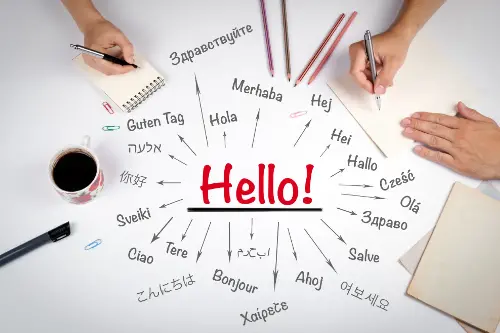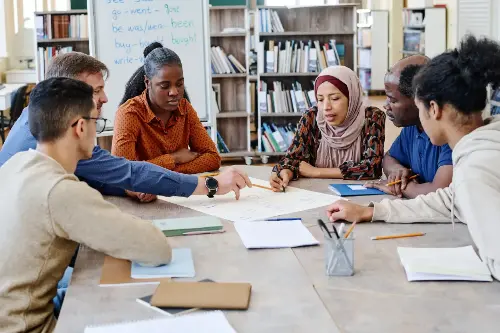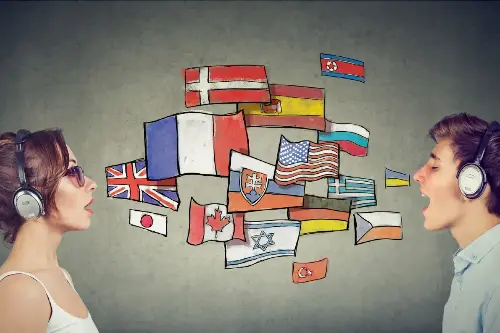Amidst the cacophony of a globalising world, language stands out as the bedrock of cultural identity, a beacon that binds communities and moulds individual identities. From the bustling streets of London to the serene landscapes of rural Africa, language encapsulates the essence of history, heritage, and heart. The very words we speak are not merely tools for communication; they are the threads that weave the rich tapestry of human existence.

Cultural Identity: A Linguistic Tapestry
For centuries, language has been the cornerstone of cultural heritage, passing down values, beliefs, and traditions from one generation to the next. Each idiom and proverb, every inflection and intonation, conveys more than meaning—it echoes the struggles and triumphs of our ancestors. When we use our mother tongue, we do more than express thoughts; we connect with our roots.
Consider the Welsh language a symbol of pride and resilience for the people of Wales. Despite numerous challenges and periods of decline, Welsh has experienced a revival, illustrating how language can preserve and enrich cultural identity amidst changing times. Similarly, the Maori language of New Zealand, once facing dwindling numbers of speakers, is now flourishing, thanks to concerted revitalisation efforts. These stories remind us of the indomitable spirit of language in maintaining cultural distinctiveness.
Language as a Connector
Beyond maintaining cultural heritage, language fosters human connection. It allows us to express empathy, forge friendships, and bridge societal divides. A shared language can unite disparate groups, facilitating dialogue and understanding in a world often marred by conflict. The linguistic diversity within countries like Switzerland or India exemplifies how multiple languages can coexist and contribute to a rich, cohesive national identity.
Language Learning: A Window to Other Worlds
In an increasingly interconnected world, learning a new language opens the door to other cultures. It signifies a commitment to understanding and appreciating differences, fostering a sense of global citizenship. As individuals embark on the journey of learning a foreign language, they gain insights not only into words and grammar but also into the customs and values of other societies.

The Neurological Impact of Language
Interestingly, linguistic engagement also has profound effects on the human brain. Bilingualism and multilingualism have been shown to enhance cognitive abilities, including memory, awareness, and problem-solving skills. This neurological enrichment further underlines the importance of language in shaping not only our social interactions but also our intellectual development.
Language Endangerment: A Silent Crisis
However, the fabric of linguistic diversity is under threat. Languages are disappearing at an alarming rate, with the UN warning that up to 90% of the world's languages may be at risk by the end of the century. The loss of any language is an incalculable loss to humanity, akin to losing an entire chapter of human history and wisdom. Each language extinguished is a unique perspective gone, a way of thinking and relating to the world that can never be recovered.
The Responsibility of Preservation
It is our collective responsibility to preserve linguistic diversity. Supporting language education, revitalisation programs, and celebrating linguistic heritage can all play a role in preventing language extinction. Technology, too, plays its part, with digital preservation initiatives offering new avenues for capturing and sharing endangered languages.
Embracing the Linguistic Mosaic
Embracing linguistic diversity is akin to embracing humanity in all its complexity. As we cherish our own languages, let's also celebrate the multitude of voices around us. By learning from one another and recognising the intricate bond between language and identity, we contribute to a more inclusive and understanding world.

Words have power. They are custodians of our past, architects of our identity, and the bridge to our collective future. In understanding the crucial importance of language in cultivating cultural identity and human connection, we uphold the legacy that words carry. We ensure that the stories, the wisdom, and the very essence of our diverse cultures continue to thrive in the symphony of human expression. Let us commit to preserving this legacy for the generations to come, for words are the ultimate inheritance we can offer to the tapestry of human civilisation.
